Music
Music is a vibrant subject where students explore their creativity. Music challenges students to be independent learners and to collaborate effectively in order to reach their potential. Students learn perseverance skills and enthusiasm to succeed.
Music is taught through the three disciplines of composing, performing and listening. It is a practical subject with an emphasis on collaborative problem solving. Music is an all-inclusive, all immersive, enjoyable subject.
We have 2 bright and colourful Music teaching rooms and 5 purpose built practice rooms. We also have a fully resourced recording studio that students can access regardless of year group. Students benefit from working on a variety of instruments and computers in Djembe Drums, Yamaha Keyboards, Drum kits and tuned percussion.
Instrumental Tuition
Instrumental tuition can be arranged for your child by downloading the request form below. Completed request forms should be returned to Miss Clapson (clapsonn@plympton.academy).
Student Statements
“Music lessons are great and I look forward to them. It’s a great chance to work together. Music is an imaginative subject.”
“Plympton Academy’s Music department has been a huge part of my school life. I absolutely loved it straight off. Music is certainly a defining part of Plympton Academy.”
Meet The Staff
- Ms N Clapson – Head of Music
- Mr M Wilkey - Music Teacher
Ethos Statement
‘Below the surface are the seeds of possibility, waiting for the right conditions to grow’ - Ken Robinson
Intent
Music exploration is for all and should provide the foundation for students to develop a passion for music, to facilitate a love of learning, exploration and curiosity. That Ignites the light of passion which opens up opportunities for all to be submerged into our musical family.
The curriculum is designed to offer a full and rich emersion of music that gives experience in Performance, Composition and Listening skills. Students will experience a range of Musical Genres that will inspire and engage them through a variety of different activities.
Implementation
Our Music curriculum is designed to give a broad spectrum of genres through which to master skills and gain secure knowledge of music. The assessment of music is through the journey and progress that students make within the lesson, semester and year. There is an emphasis of building expertise over time, with sufficient time to review previous learnt material as well as the opportunity to build new skills step by step. Models of excellence are given to inspire, with scaffolding and independent practice used as common lesson structure for students to achieve their best.
Impact
The biggest gain that we want from our curriculum is for students' confidence to increase as a holistic person as well as a performing/composing musician. Our greatest impact in the Music department is the engagement of our students that can be seen in all lessons. KS3 topic work regularly shows good and exceptional understanding. Teaching and learning in the department is good and can be evidenced through positive internal learning walks. We have a healthy uptake with over 25% of the year 9 cohort opting for Level 2 Music. Although our KS5 uptake is currently quite small we aim to see an increase in numbers within the next year, we also have many successes of students going onto University to study Music.
The uptake of instrumental lessons has also steadily increased over the last 3 years and continues to rise with many students taking examinations in their instrument. With recent success of students gaining Distinctions in graded singing LCM exams we are positive of the quality provision we are giving our students.
We want our students to embrace life with passion and enthusiasm and a love of learning. We expect students to feel safe to perform in the classroom as well as in concerts and onstage. There is a sense of support and safety in the classroom to give advice and to set and receive targets to build upon from peers and the teacher. Assessment is through students reflecting upon their learning during verbal feedback constantly during each semester of work. Our greatest expectation is that students will become more involved in the department in the form of extra-curricular clubs, rehearsing in individual bands/groups using the facilities at break and lunch and to inspire a love of music.
Year 7
Finding your voice
During this Unit we will explore how your voice can help you open up opportunities in music but also in other areas of learning and life. We will work on being able to project clearly and loudly as an Ensemble, small group and individuals. We will build on our confidence to perform within a safe and secure creative environment and develop that inner voice.
Key Elements we are looking at include
- Confidence (all aspects not just
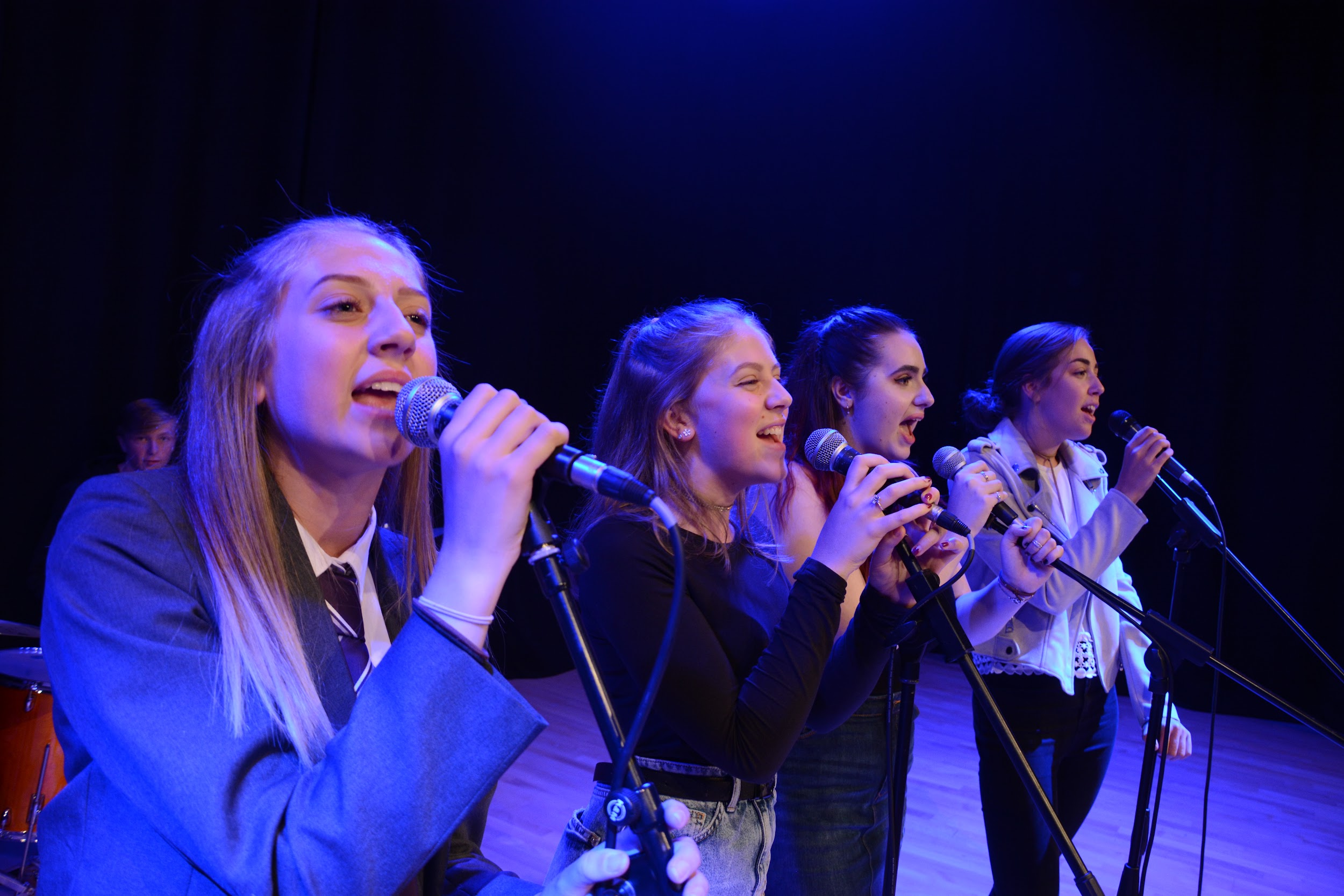 when performing)
when performing) - Respect
- Discussion
- Listening
- Projection of the voice
- Diction
- Collaboration
- Unison
- Harmony
- Structure of a song
- Breath control
- Rapping
- Singing
Key Performers and Pieces
- Will Smith - Boom Shake the Room
- Ed Sheeran - Any…
- Aretha Franklin
- Queen - Bohemian Rhapsody
- Current Music - Chosen by students
Progression Pathway
This unit helps you to develop your confidence and allows you to have a say during the lessons, rehearsals and when giving feedback. Knowing how to breathe and calm your body will help with all aspects of performance in music. Our collaboration as a class means we work as a team, a key ingredient in music.
Back to Basics - Rhythm
During this Unit we will look practically at how rhythm works in music and learn how we can read rhythms for different instruments. Learning how music works is really important to allow us to work independently with instruments during semester 3 and 4.

Key elements we are looking at include
- Time Signature
- Layering
- Rhythm Grid
- Rhythm Notati
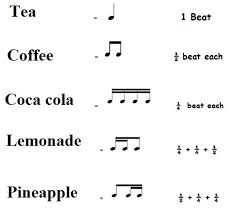 on
on - Crotchet
- Quaver
- Semi Quaver
- Minim
- Beat
- In time
Key pieces and Performers
- Stomp
- Blue Man Group
- We Will Rock you
Progression Pathway
Throughout your music lessons you will need to read and understand what music values are. This will help you play an instrument from music I give you in other projects. You may decide to take music in year 9 and there are lots of opportunities to perform on an instrument with other members of the class.
Back to Basic - Pitch
Not only is rhythm important in music but pitch is equally as important so you can play things like the keyboard, know if music is going up or down in pitch. We will learn how to read the pitches of notes on what is called the Stave and then know how we play them on an instrument. We will look how music used to sound in the Medieval Period and learn to play a song made popular by the ‘Medieval Babes’. We will explore the VOICES on the keyboards and add drums to create our own medieval performance.
As an extension we can create our own verse for our performance using the Dorian scale.
Key Elements we are looking at include
- Every Good Boy Deserves Football (no I am not crazy!)
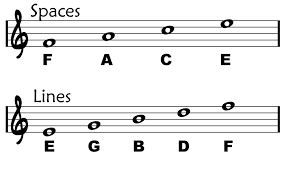
- FACE in the Space
- Music Notation
- Score
- Stave
- Treble clef
- Ostinato
- Drone
- Melody
- Modes
Key pieces and performers
- Salva Nos - medieval babes
Progression Pathway
This unit will allow you to access any piece of music and play anything on the keyboard. But, it will also give you the knowledge and skills to read music and understand how it relates to an instrument.
You're in the Band!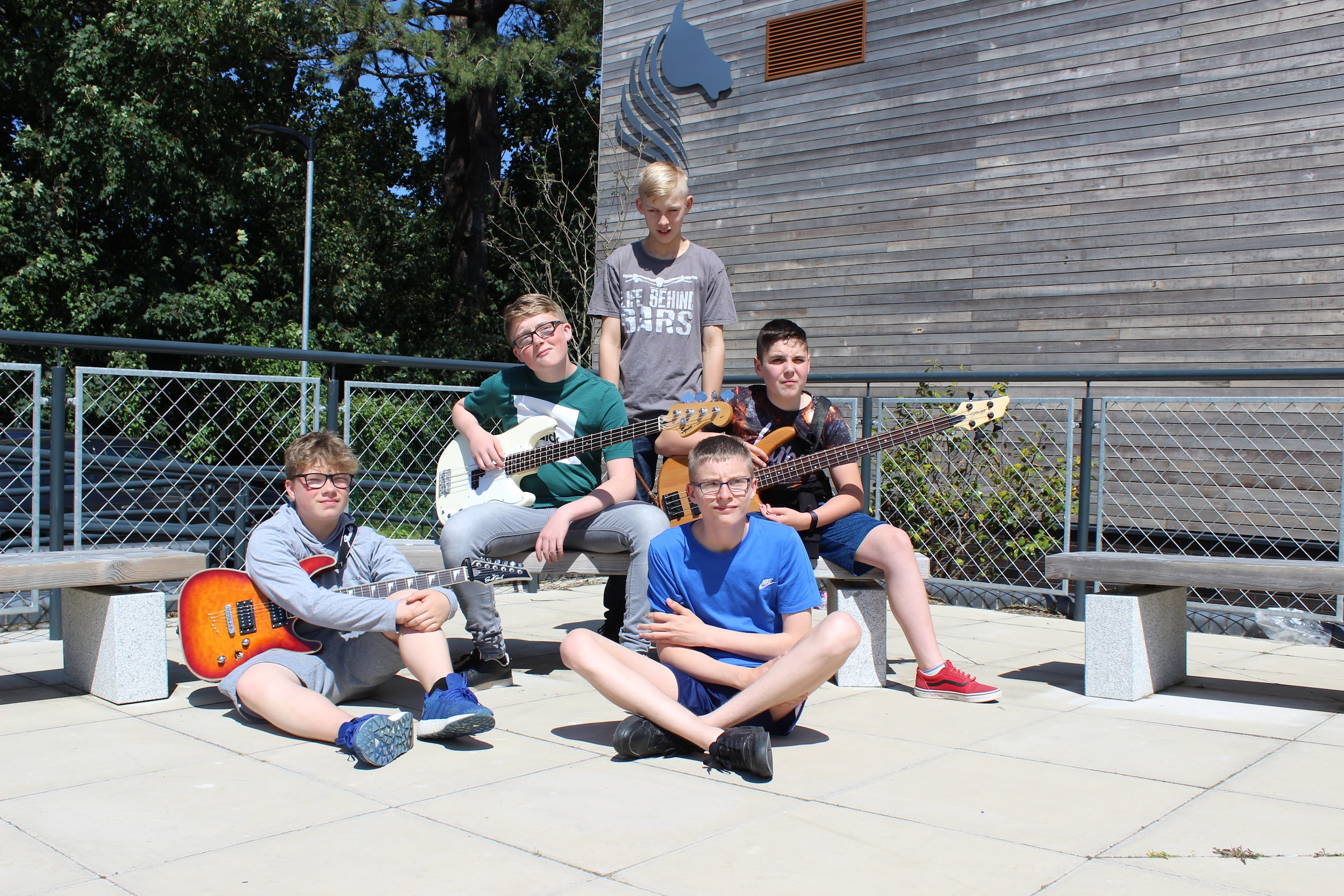
A chance for you to choose what instrument you play and get together with other members of the class to create a performance band. Using the skills you have gained this term we will be putting a band together using the following instruments;
- Guitar
- Bass Guitar
- Drums
- Piano/Keyboard
- Ukulele
- Vocals
We will learn to read chord charts and guitar tab and perform pieces from the charts. We will learn to read from resource sheets with guides and understand about being in time with each other. We discover how we perform as a group, who plays which part and how we support each other to perform live.
Key Elements we are looking at include
- Performance skills - Confidence - stage presence
- Working as an ensemble - Listening - watching - collaboration - rehearsing
- Reading Tablature
- Chord Charts
- Instrumental skills - techniques - practice
Key pieces and performers
- Queen - Live at Live Aid
- Rude - Magic
- Shake it off
- Riptide
Progression Pathway
This unit is about working as a group using a variety of different instruments playing different parts. You have to really listen to hear how your part fits with the other people in the band. Mastering skills on a new instrument means that in year 8 and in music you can learn other styles of music and play it on anything. If you choose to take music in year 9 or at Level 3 then you will be expected to play an instrument on your own and in an ensemble. In music in year 8 there will be lots of opportunities to play in groups and explore new instruments and gain independence and rehearsal skills. This unit links to Learning Aim A - component 1 of the level 2 Btec and the Level 3 National Extended Certificate in Music Performance.
Year 8
World of the Talking Drums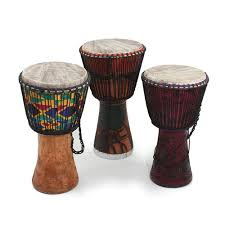
In this semester you will learn to play the African Djembe (Jem-Bay) drum alongside other members of your tribe. You will learn to communicate through the Djembe and perform as a tribe using a variety of different music structures and devices. You make a piece following the Rondo structure that many African pieces follow, and you will learn some of the key devices and elements that African music use.
Key elements we are looking at include
- Rondo Form - Structure of a Musical Piece ABACADA
- Chanting - to speak words rather than sing
- Wailing - Sliding from low pitch to high
- Polyrhythms - multiple layers of Rhythms
- Call and response - when the leader plays a rhythm and the rest of the tribe copy it.
- Unison - all playing the same thing at the same time.
Key Pieces and Performers
- Soweto Gospel Choir
- Tate Wetu
- Samaqwasa
- The Mighty Zulu Nation
Progression Pathway
Music allows you to explore other cultures and African Music is really important. It is the origin of popular music and it has shaped music that you listen to today. If you take Music in year 9 or year 12 you will be expected to know and understand how music has developed and travel across the world. You will also need to know how structures and devices have influenced what we hear and play today. This unit links to Component 1, learning Aim A - Btec level 2 Tech Award in Music Practice.
Moving continents - Chillax Reggae
During this semester we move to Jamaica and the Music of Bob Marley and the Wailers. We will listen to the music of Bob Marley and learn to play one of his songs using a variety of Instruments such as Guitar, Keyboard, Vocals, Ukulele, Bass Guitar and the drums.
Key elements we are looking at include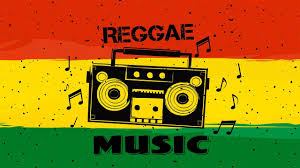
- Chords
- Off-beat
- Syncopation
- Bass riff
- Saxophone Riff
- Parts
- In-time
- Performance
- Chorus
- Verse
- Reading Notation
Key Pieces and Performers
- Bob Marley - 3 Little Birds
Progression Pathway
Again Reggae allows you to understand how music has travelled and how this has developed music. The drop beat and syncopation allowed music to develop yet again and gave a new feel. Component 1, learning Aim A - Btec level 2 Tech Award in Music Practice.
Feeling Blue
This Semester you will be looking at The Blues and where it came from and why and how it was created. We will try and understand about the slave trade and how music helped those taken from Africa helped establish a new style of music that became the foundation of popular music we hear today. We will play some of the instruments they use in the blues and learn about its structure and stylistic elements.
Key elements we are looking at include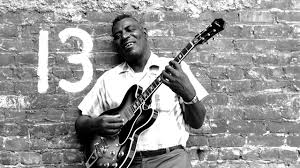
- 12 bar blues
- Blues Scale
- Chords I IV V7
- Extended chords
- Metal strung Guitars
- Walking Bass line
- Improvisation
- Melody
- Scat singing
Key Pieces and Performers
- Wade in the water
- Howlin Wolf
- B.B King
- Eric Clapton
Progression Pathway
This unit allows you to start to understand how music is put together and how we make chords. Learning chords and scales gives you a whole pallet of colour to play with when making music. It means that if you choose music in year 9 and 12 you can compose pieces and understand that some chords will fit and some won’t. This unit will give you the foundations to build music on instruments and to be able to create music instantly without writing it down. You will learn to hear what is working and what does not. Component 1, learning Aim A - Btec level 2 Tech Award in Music Practice.
Music at the movies
We all go to see films whether it’s Spiderman, The Avengers or Star Wars. Music features heavily in any film to create a sense of excitement, tension, or to heighten our emotions. You will get to take a scene from a film and create music to reflect what is happening on screen. This will be done using Music technology and a programme called Garageband. You will have a chance to add parts in the recording studio on live instruments as well as working on Music Industry Macbooks.
Key elements we are looking at include
- Soundbed
- Motif
- Accompaniment
- Dynamics
- Development
- Programme music
- Colouration
- Tonality
- Instrumental Techniques
- Linear composing
- Extended Chords
- Inversions
Key Pieces and Performers
- Beethoven - Pastoral Symphony
- Wagner - Ride of the Valkeries
- John Williams - Star Wars, Jaws, Jurassic Park/World
- Alan Silvestri - The Avengers
- Monty Norman - James Bond
- James Horner - Titanic
- Danny Elfman - MIB
Progression Pathway
This unit is about how music works with images and makes us feel emotions. Know how instruments can be played in different ways to make more textures of sound. You will create Motifs that can be explored and developed, this is an aspect of level 2 and 3 music that you can focus on to compose music for a variety of different media. Component 1, learning Aim A - Btec level 2 Tech Award in Music Practice.
Year 9
What makes a successful ensemble?
A year of skill building as a musician. The course will cover the Performance, composition and listening skills. Our first Unit allows us to discover key skills to be a successful ensemble. You will work in mixed ability groups to perform a piece in either the lesson or a music concert. You will make sure you rehearse effectively and independently know what to do if you ‘get stuck’. Working as a team player is really important as is developing your own skills on your chosen instrument. You will be expected to be able to practice on a regular basis so you support and develop with your band.
Key elements we are looking at include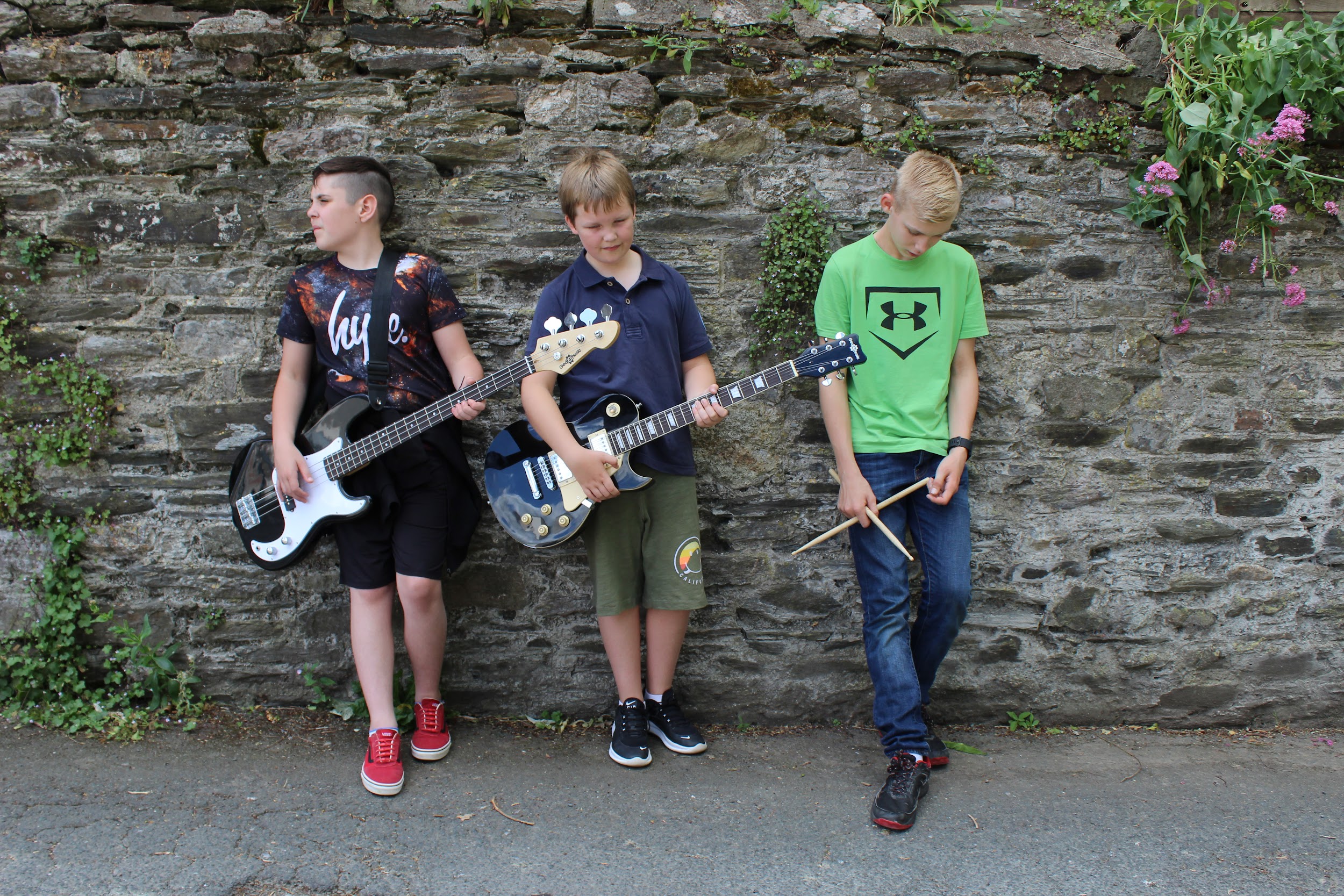
- Timing
- Individual musicianship - learning your instrument - warming up - technical exercises
- Rhythm Section
- Counting in
- Visual Communication
- Audible communication
- Interaction
- Stage Presence
- Audience interaction
- Knowing Weakness and strengths
- Setting Targets
- Sensitivity to others
Progression Pathway
This unit allows you to become independent of the teacher and challenge yourself. You will have the opportunity to focus on your chosen instrument taking time to practice a part to play alongside others. If you continue to study music in year 12 you would have lots of opportunities to play as an ensemble. You would be able to teach others how to play and be able to lead and direct other ensembles across the department. This Unit links directly to component 1 and 2 of the Btec level 2 tech Award in Music practice and also Unit 3 Level 3 National Extended Certificate in Music Performance.
Creating music
In this unit we will explore how music is composed and structured. You will look at scales and modes, harmony, structure, instrumental techniques. You will explore and extend ideas in small groups and individually focusing on a variety of instruments and parts and their functions.
Key elements we are looking at include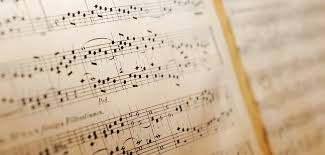
- Structure - Song form/Variations/Rondo/Binary/ternary
- Harmony - chords/inversions/chord progressions/Extended chords
- Musical Devices - drone/riff/hook lines/canon/imitation/sequence/ground bass/retrograde/inversions
- Colouration - Instrument techniques to create a palette of sound.
- Dynamics
Key pieces and performers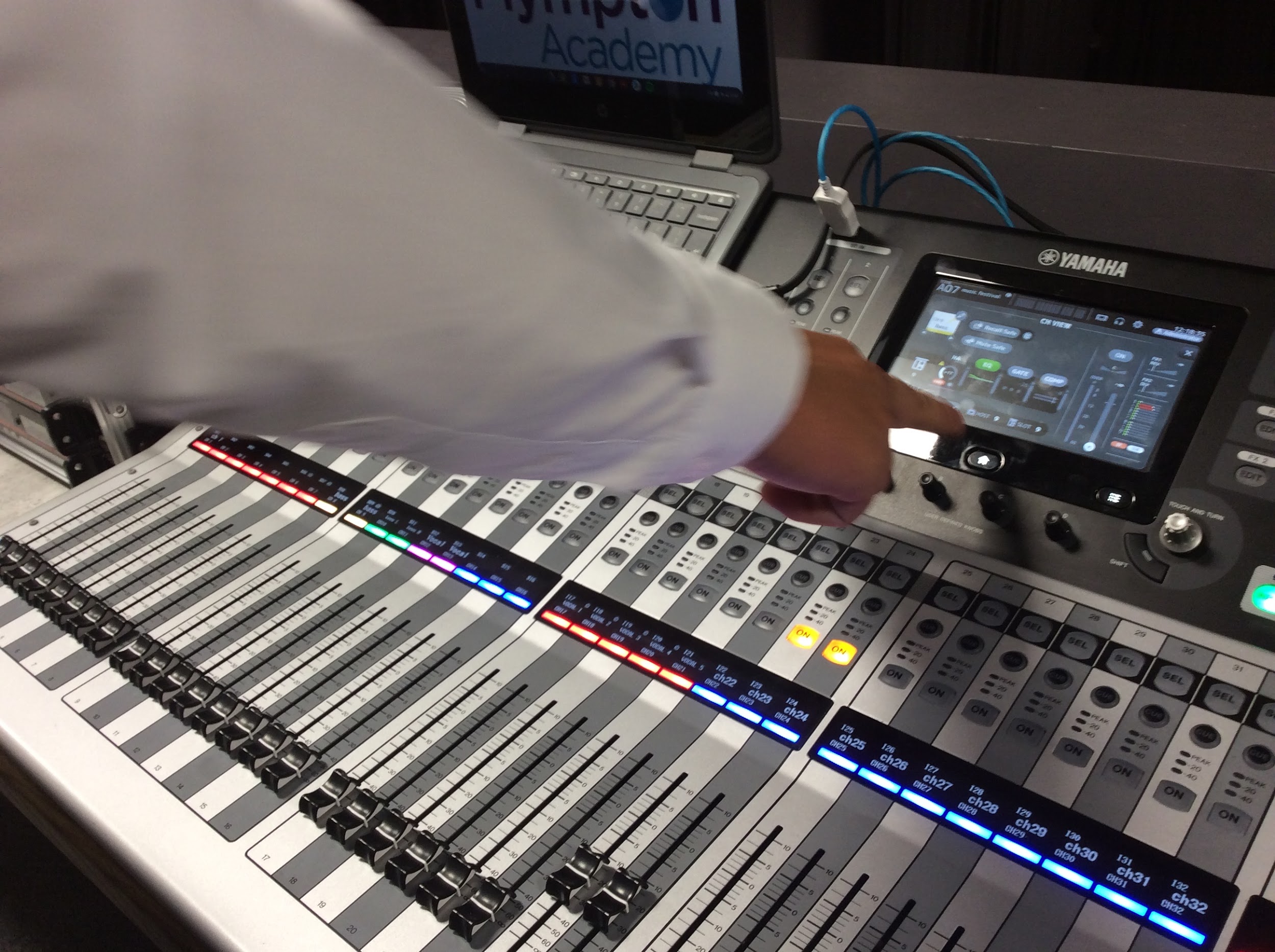
- Pachelbel's canon
- Canon rock
- Don’t stop me now
- Bach - toccato and Fugue
- Steve Reich - Clapping song
- Handel’s Messiah
- Beatles - Little help from my friends
Progression Pathway:
This unit allows you to explore music composition, experimenting with musical devices and how you can manipulate ideas. This unit links directly to Component 1, learning Aim B - Btec level 2 Tech Award in Music Practice and Unit 1 Level 3 National Extended Certificate in Music Performance.
Music Products
In this unit you will look at what a music product is and how we can create our own product. As a team you will create a promo video of your chosen piece and your members of the band. You will create the video footage and play the music for the soundtrack. This will be recorded in the studio on to Logic and then added to your promo video. You will learn the steps of how to self promote as an artist or band. There is also an expectation for you to perform in the department concert Chillax.
Key elements we are looking at include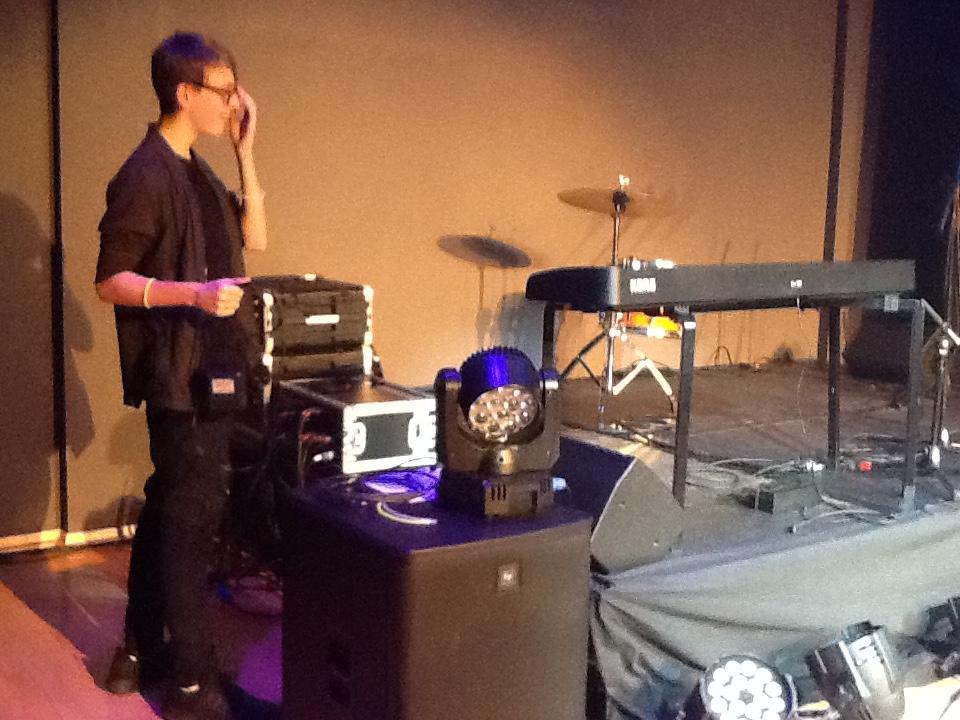
- Soundtrack
- Photoshoots
- Scheduling
- Music recording equipment - Mic’s - Stands - Cabling
- Logic Pro
- Channels
- Time Management
- Rehearsing
- Independence
Progression Pathway
This unit allows you to see how you could market yourself as an artist. It will give you skills and let you create ideas to publish websites to download your music, promo videos if your a performer. It links directly to Btec first Award Unit 2 and Component 1, learning Aim B - Btec level 2 Tech Award in Music Practice and Unit 1 and 4 Level 3 National Extended Certificate in Music Performance.
Music and Technology
In this unit we will be looking at how Music can be made using technology, or alongside technology. We will be using Garageband, Logic and the recording studio to make music as well as the DJ desk. You will be able to play live with technology or stay creative on the Macbooks.
Key elements we are looking at include
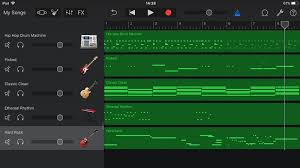
- Soundbed
- Tracks
- DAW
- Reverb
- Compression
- Midi Keyboard
- Logic Pro
- Garageband
- Window editors
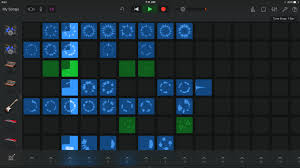
- Mixers
- Tracks
- Hot Cues
- Desks
- Scratching
- Fading
- Tempo
- loops
Key pieces and performers
- Marshmellow
- Pete Tong
- Fatboy slim
- Jean Micheal Jarre
- Daft Punk
- David Guetta
Progression Pathway
This unit allows you to work with Music technology, creating and performing as well as becoming skilled with music editing and sequencing programmes. It links directly to Btec first Award Unit 2 and Component 1, learning Aim B - Btec level 2 Tech Award in Music Practice and Unit 1 and 4 Level 3 National Extended Certificate in Music Performance.
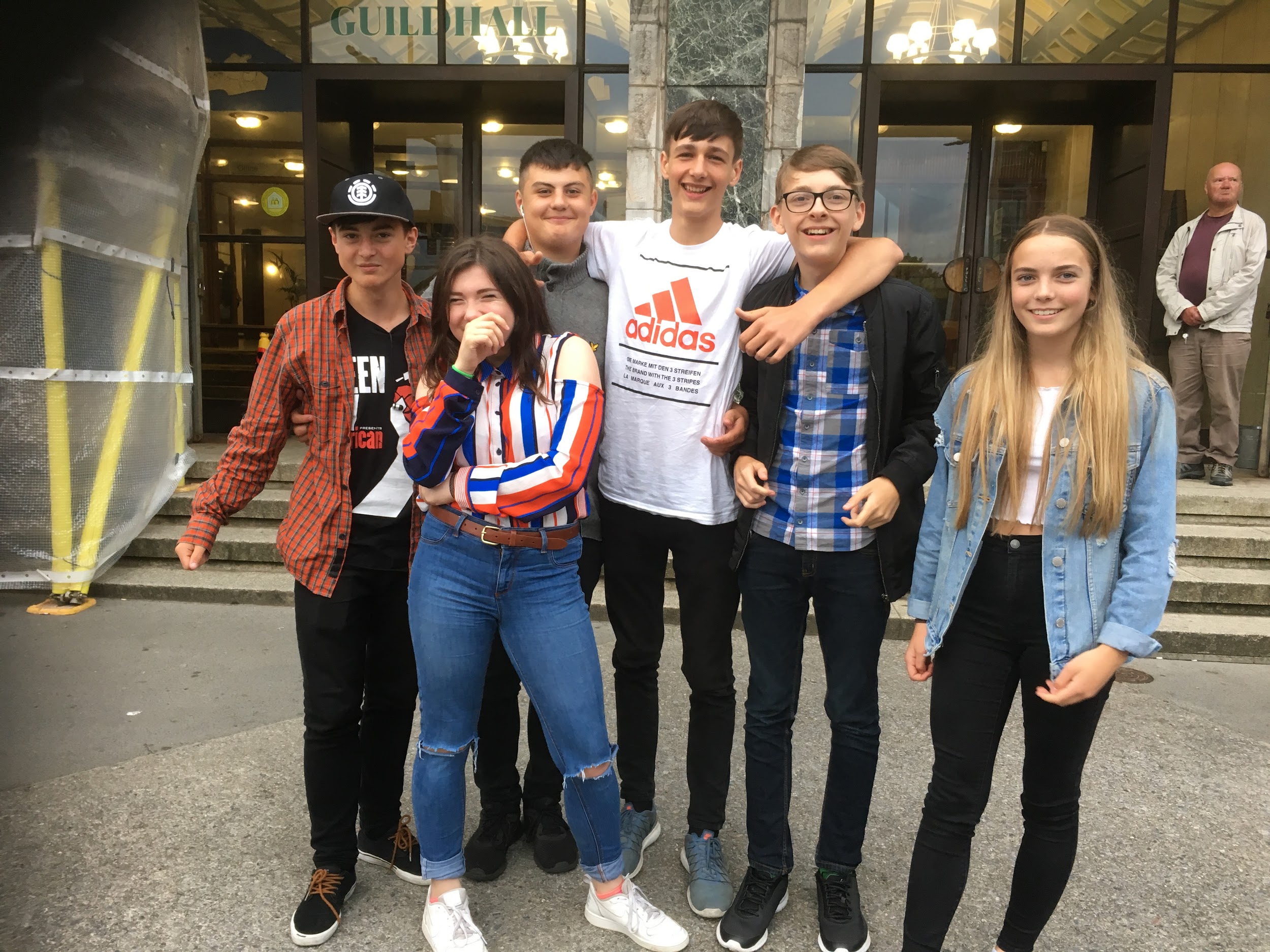
Year 10/11 - BTEC Level 1/2 First Award in Music
4 units required with Unit 1 being Music in the Industry Exam of 1hr.
|
|
Semester 1 |
Semester 2 |
Semester 3 |
Semester 4 |
|
Year 10 |
UNIT 2 |
UNIT 2 logs |
UNIT option |
UNIT option |
|
Year 11 |
UNIT 1 UNIT 3 |
UNIT 1 Exam UNIT 3 |
Optional UNIT 1 (resit) 5/6/7 |
Optional UNIT 1 (resit) 5/6/7 |
YEAR 10
Unit 2 - Managing a Music Product (25%)
Learning aims:
In this unit you will:
- (A) plan, develop and deliver a music product
- (B) promote a music product
- (C) review the management of a music product.
Students will organise and deliver either a concert or CD using the college facilities and current events calendar. The Unit corresponds with the Department Autumn COncert. They will be required to set up, run, perform in and de-rig the whole event themselves.
You need to include activities as part of the Production Team creating the Concert will include:
- Contribution to scheduled rehearsals and meetings.
- Considering suggestions such as alternative/additional material, live performances or recorded backing tracks with soloists.
- Reviewing the progress of the work making any changes necessary to meet deadlines and achieve your aims.
Coursework lessons will be allocated alongside the practical sessions 1 per fortnight with written being the focus during semester 2 and 3. It is essential for this unit to work as part of a production team and band to plan and organise the Autumn Concert. You need to ensure you are a vital member of the team giving ideas and suggestions to obtain a higher level grade. All practical work needs to be supported with either written notes/logbook or a detailed Vlog.
Preparation for the final Unit in year 11…
Unit 5 - Skills development as an individual Performer
Unit 6 - Recording in a Music studio
Unit 7 - Introducing Music Sequencing
Students will be given an introduction to the above 3 courses so they can make an informed choice in year 11 Semester 2. They will be given the foundation techniques and elements on which to build in year 11.
YEAR 11
Unit 3 - Introducing Live Sound (25%)
Learning aims:
- (A) plan for a live music event
- (B) demonstrate understanding of health and safety
- (C) set up and use live music systems.
Lessons will include practical sessions on the following;
- organisational requirements or roles and responsibilities – roadie, sound engineer, monitor engineer, backline, front of house (FOH)
- stage planning, showing positions and sizes of equipment to be used in a performance
- legal considerations, e.g. Performing Rights Society (PRS) licence, entertainment licence, age limits for the venue
- creating inventories and schedules, e.g. set up and sound check
- equipment requirements o sound reinforcement requirements – microphones, number, type, stands, cables, DI boxes,
- risk assessment o identifying the hazards and risks to personnel, the public and equipment o suggesting measures to minimise risk
- manual handling o how to lift, carry and unload safely without injury to self, others or property
- personal protection equipment (PPE) o gloves, steel toecap boots, ear plugs, safety harness, hard hat
- electrical safety o visual checks to identify worn cabling, damaged equipment o Portable Appliance Testing (PAT) equipment and procedures of safety when using electricity outside o what to do in the event of electric shock.
Finally, students will be required to actually undertake the set up, operate and de-rig the live sound system for a school event working under the safety guidelines given to them.
Unit 1 - The Music Industry (25%)
Learning Aims:
- (A) understand different types of organisations that make up the music industry
- (B) understand job roles in the music industry.
This Unit will be assessed through a 60 minute exam with multiple choice questions and 8 mark questions that need detailed answers. Students will have the opportunity to sit Mock exams and practice for this exam during their lessons.
Final Unit (25%)
Students will need to choose one of the following Units to complete the course. All units are internally assessed with Unit 5 and 7 encompassing a recital performance in June of year 11.
Unit 5 - Skills Development as an Individual Performer - sole and ensemble performance in a recital evening.
Unit 6 - Recording in a Music Studio - Recording other members of the class in the Department recording studio.
Unit 7 - Introducing Music Sequencing - creating a performance piece on either a computer or DJ desk to be played at the Recital evening.
Year 12/13
Two course are offered in the Sixth Form at Level 3: BTEC Level 3 Music Performance and BTEC Level 3 Music Technology.
Watch this video to get more information about both courses.
Overviews of the two courses can be viewed using the following links:
|
|
|
Career Options
Music is a desirable subject for applicants to most professions. Having been involved with music either through the curriculum or at a more dedicated level, proves you have team skills, perseverance and an aspiration to improve yourself. Your creative problem solving skills are likely to be much better and you have shown that you are willing to ‘go the extra mile’.
More subject specific pathways include:
- Performance
- Singer/song writing
- Composition
- Recording Industry
- Events Management
- Teaching

